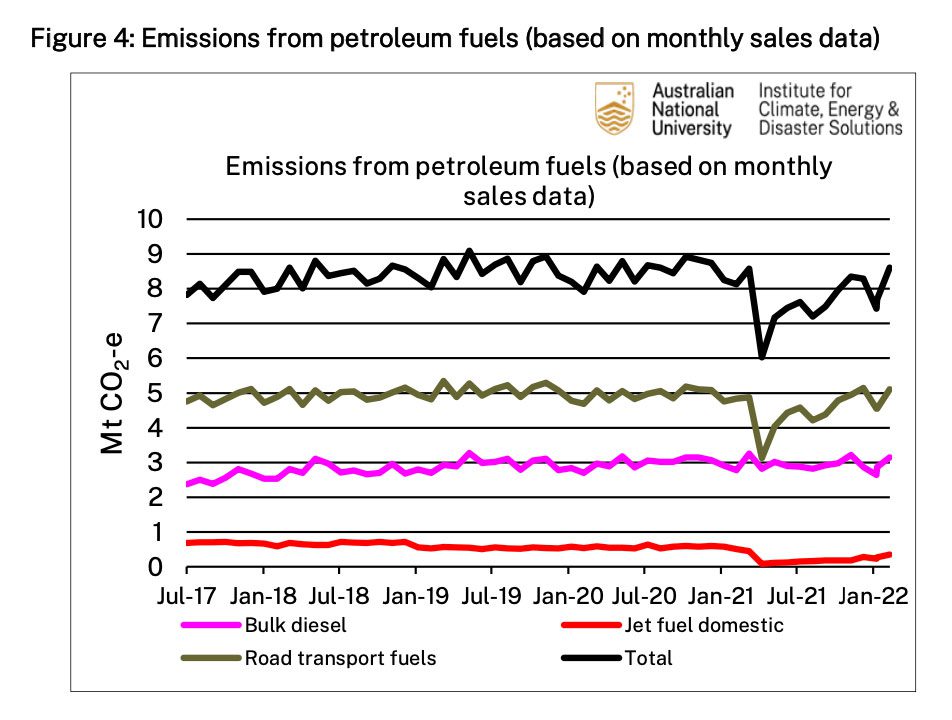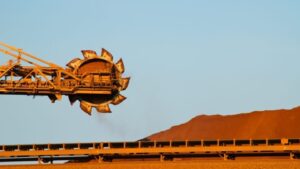Imposing new taxes on the windfall profits earned by fossil fuel producers on the back of surging energy prices – rather than further subsidising energy costs – could be the key to solving the current energy crisis.
Speaking at the Australian Energy Week conference on Thursday, ANU economist professor Frank Jotzo said the direct subsidisation of energy costs was not an efficient way of improving outcomes for energy consumers, and governments should instead look to tax “excess profits”.
Jotzo suggested that a more effective way to drive investment in new energy infrastructure and to lower costs for consumers, would be for governments to use potentially higher tax revenues to fund measures like energy efficiency.
“On the radio the other morning, you could hear West Australian ex-premiers saying, ‘Weren’t we smart to put a gas reservation policy in place?’ Yes, of course, that reduces the cost of gas to domestic consumers,” Jotzo said.
“A much better version to achieve a similar outcome in the end is to let the international price prevail, but tax profits. We really falling far short in this country in properly taxing resource excess profits.”
“But, economically speaking and also in terms of overall community interests, this is where it needs to go.”
Jotzo said imposing a tax on the resources companies making excess profits could provide governments with funds that can be used for re-investment in new energy saving measures.
“When you’ve got the revenue, you can allocate it flexibly. Allocate it to low income earners, as a winter heating and electricity subsidy as a short term measure. It’d be politically popular as well,” Jotzo told the conference.
“We want full incentives for people to invest in energy saving. Energy efficiency across the board in Australia is really quite scandalously low.
“What you wouldn’t want to do are straight-out subsidies of energy prices. The halving of the fuel excise, for example, is in the book of bad policy.”
Jotzo’s comments follow the release of the latest edition of the Australian Energy Emissions Monitor, co-authored by Jotzo and the ANU’s Dr Hugh Saddler, which shows Australia’s emissions from gas and fuel use increasing as travel and industrial activity return to pre-Covid levels.
The June edition of the monitor found that while energy sector emissions had fallen over the preceding 12-months, electricity generation was the only sector achieving sustained reductions in greenhouse gas emissions as the consumption of gas and liquid fuels rebounded following the relaxation of Covid-19 pandemic travel restrictions.
The electricity sector has achieved sustained reductions in emissions as the market share of wind and solar continues to grow, while also pushing more expensive gas and inflexible coal generation out of the market.
Saddler said coal fired generators in New South Wales and Queensland had “performed particularly badly” with regards to their operational availability going into winter when output from solar farms declines. Saddler said this had been a contributing factor to the recent surge in wholesale electricity prices.
“The overall effect has been a general tightening of the balance between supply and demand at a time when the average contribution of solar generations is rapidly decreasing,” Saddler says.
“Low availability of coal means that gas fired generators, although only a small contributor to total supply, are more frequently in the situation of being the marginal source of supply, thereby setting the spot price for the relevant trading period.”
Counteracting the fall in electricity emissions was an increase in transport emissions, which have now largely returned back to pre-Covid levels, across both personal travel and by heavy industry, despite surging prices.
“In the case of petroleum fuels, growth in consumption, and resultant emissions, was mainly driven by growing road transport consumption, whereas in WA the main driver of consumption growth was consumption of diesel by the mining industry,” the report says.

Commenting on government fuel policy, Saddler says subsidies handed out by the former Morrison government to Australia’s last two remaining oil refineries would have no impact on Australian fuel prices, and would not improve fuel security as they made no change to Australia’s heavily reliance on imported oil.
“Public subsidies to support the continuing operation of Australia’s two remaining oil refineries can have no effect on fuel prices in Australia and does nothing for fuel security, since Australia depends on imports for more than 90 per cent of its consumption of crude oil and petroleum products,” the report says.
“Subsidising these refineries is an explicit obstacle to a transition towards a cleaner, more efficient and lower emission road transport system.”









